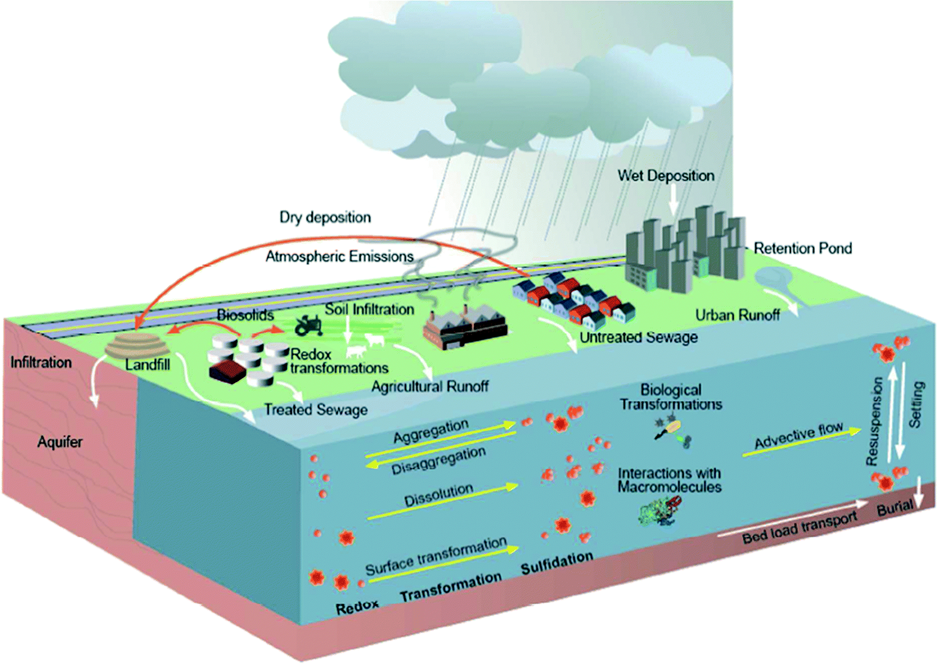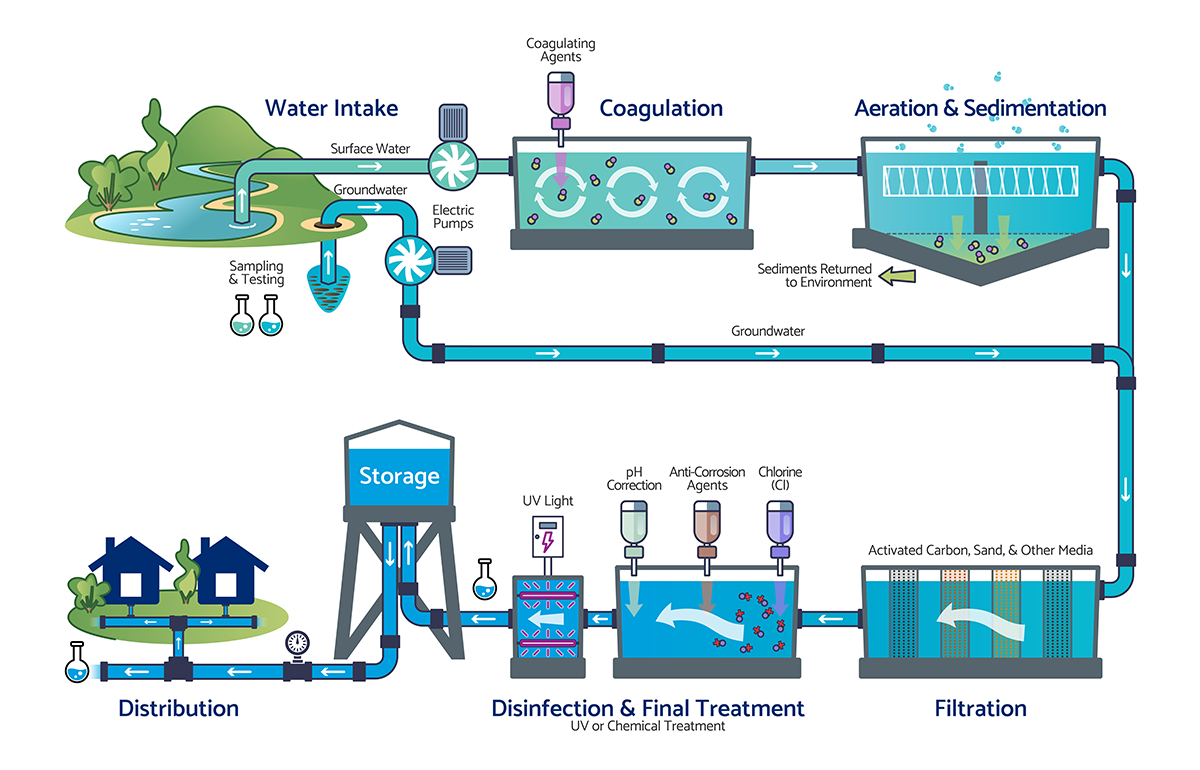Water Technology Startups: Strategies for Expanding Globally
Wiki Article
Discovering Water Technology Startups: How They Transform Lasting Solutions
Water Technology startups are arising as essential gamers in the mission for sustainable options to international water issues. These firms utilize ingenious innovations to improve water efficiency and monitoring. Their contributions resolve pressing obstacles such as deficiency and contamination. Nonetheless, regardless of their capacity, they deal with various challenges that could impact their success. Recognizing these dynamics clarifies the future of water sustainability and the function these start-ups might play fit it.The Significance of Water Technology in Today's Globe
As worldwide water scarcity escalates, the relevance of water Technology ends up being significantly apparent. Water Technology plays a vital function in resolving the difficulties postured by diminishing freshwater sources and enhancing need. It includes a wide series of developments, including sophisticated purification systems, wastewater treatment technologies, and smart irrigation options. These improvements not just boost the effectiveness of water usage however additionally promote lasting techniques throughout numerous industries, consisting of farming, industry, and metropolitan advancement.The significance of water Technology expands beyond resource monitoring. It fosters resilience versus climate change impacts, such as dry spells and floodings, by providing adaptive remedies for water preservation and administration. In addition, it sustains public health by making sure accessibility to clean and safe alcohol consumption water. As the world encounters growing water-related challenges, the assimilation of innovative water innovations is necessary for fostering lasting development and safeguarding water availability for future generations.
Cutting-edge Solutions From Water Tech Startups
While traditional techniques to water administration have served their purpose, a new age of water tech start-ups is transforming the sector with ingenious services (Water Technology Startups). These companies take advantage of innovative innovations to resolve pushing water problems, such as shortage, contamination, and inefficient distribution. Many startups make use of expert system and equipment understanding to maximize water usage and predict need, resulting in more lasting techniquesAdditionally, several companies concentrate on establishing sophisticated filtration systems that get rid of pollutants and make water secure for usage. Others discover decentralized water therapy technologies, permitting areas to handle their water sources extra efficiently. Some start-ups are pioneering smart watering services that decrease water waste in farming, advertising ecological preservation.
Instance Studies: Successful Water Technology Startups
Numerous water Technology startups have arised as leaders in dealing with global water challenges through ingenious techniques. One notable example is Xylem, which concentrates on water analytics and clever framework to enhance water use and minimize waste. Their solutions have been implemented in different municipalities, demonstrating considerable enhancements in water management efficiency.An additional successful startup, Absolutely no Mass Water, has actually created solar-powered hydropanels that extract water vapor from the air, giving lasting drinking water in arid regions. Water Technology Startups. This Technology has been released in a number of countries, guaranteeing areas have accessibility to tidy water
AquaVenture Holdings runs a diverse portfolio of water-as-a-service remedies, dealing with water shortage through desalination and wastewater treatment. Their projects have proven important in areas facing extreme water scarcities, showcasing the capacity of innovative water innovations to create lasting, positive effects. These situation studies highlight the transformative capacity of start-ups in the water Technology sector.
The Duty of Smart Technology in Water Monitoring
Smart Technology plays a necessary role in modern water monitoring by leveraging IoT applications to optimize resource use. Information analytics improves efficiency by giving actionable understandings, while remote tracking options allow real-time oversight of water supply. With each other, these developments change just how water is handled, advertising sustainability and operational efficiency.IoT Applications in Water
As water scarcity and administration challenges magnify worldwide, the assimilation of Internet of Points (IoT) applications has become a pivotal remedy in optimizing water sources. IoT Technology facilitates real-time tracking and evaluation of water systems, allowing extra reliable usage and monitoring. Sensors released in different water frameworks can track high quality, circulation rates, and leakage, providing valuable information to stakeholders. This information empowers energies and customers to make informed choices, lowering waste and boosting conservation initiatives. Furthermore, wise irrigation systems use IoT to optimize water delivery for farming, guaranteeing that crops obtain the right quantity of water at the ideal time. Generally, IoT applications are changing typical water management methods, fostering sustainability and resilience in water resource systems.Data Analytics for Performance
Taking advantage of information analytics is essential for enhancing performance in water management. Water Technology start-ups are progressively utilizing advanced analytics to optimize resource allowance and minimize waste. By evaluating data from numerous sources, these start-ups can recognize patterns and fads that educate better decision-making. Anticipating analytics can forecast water need, allowing energies to readjust supply appropriately, thereby lessening lacks and excess. Furthermore, real-time information handling makes it possible for the prompt discovery of leaks and inadequacies within distribution systems, substantially minimizing operational costs. Data-driven understandings equip stakeholders to apply targeted preservation methods, fostering sustainable methods. Fundamentally, integrating data analytics into water management not only enhances procedures however likewise advertises long-term sustainability in water source use.Remote Monitoring Solutions
While conventional water monitoring systems usually have a hard time with ineffectiveness, remote tracking options are changing exactly how water resources are taken care of. These ingenious technologies allow real-time information collection and evaluation, permitting stakeholders to monitor water quality, circulation prices, and usage patterns from afar. Utilizing sensors and IoT tools, remote surveillance gives immediate insights that help with positive decision-making. This shift not only improves operational efficiency but likewise promotes sustainability by decreasing water waste and optimizing resource allotment. Furthermore, remote monitoring systems can determine possible problems before they escalate, therefore decreasing the danger of contamination or framework failure. As water Technology start-ups remain to develop these services, the market is poised for substantial improvements in lasting water administration methods.Difficulties Facing Water Technology Startups
Water Technology start-ups encounter substantial difficulties that can impede their growth and success. Trick concerns include protecting appropriate funding, steering via intricate regulatory atmospheres, and competing in a jampacked industry. These obstacles require calculated preparation and advancement to get over.Funding and Investment Hurdles
Although innovation in water Technology holds immense capacity for dealing with international obstacles, start-ups in this field typically deal with significant financing and investment hurdles. Several investors remain mindful, regarding the water field as high-risk as a result of its complex governing landscape and lengthy growth timelines. In addition, start-ups frequently battle to show immediate earnings, which can hinder prospective backers. Standard equity capital may neglect water innovation, preferring sectors with quicker returns, such as technology or durable goods. Additionally, securing grants and federal government financing can be affordable and time-consuming, further complicating financial stability. Water Technology Startups. Because of this, several innovative water Technology startups find themselves in a precarious setting, calling for creative funding approaches to browse these monetary obstacles and accomplish their objectivesGoverning Compliance Issues
Steering regulatory conformity is a considerable obstacle for startups in the water Technology industry, as they have to face a myriad of regional, nationwide, and global regulations. These laws typically encompass water quality standards, environmental defense legislations, and safety methods, which can differ commonly throughout territories. Start-ups might find it challenging to browse this complex landscape, specifically when scaling procedures or getting in new markets. The prices related to compliance can be substantial, diverting resources away from innovation and product advancement. Additionally, hold-ups in obtaining essential authorizations or qualifications can hinder development and market access. A durable understanding of governing structures is vital for these startups to assure sustainable operations and avoid prospective legal effects.Market Competition Dynamics
As water Technology start-ups arise in a competitive landscape, they face countless obstacles that can impede their development and innovation. Developed companies typically control the marketplace, leveraging resources and experience to preserve their placements. Start-ups battle with minimal financing, which limits r & d capacities, making it difficult to complete on Technology and pricing. Furthermore, the swiftly evolving nature of water technologies demands continuous adaptation, more stressing start-up sources. Regulatory hurdles can make complex market entry, as compliance with ecological requirements is crucial yet pricey. Lastly, attracting skilled ability in a niche field presents another obstacle, as larger companies may use more attractive work bundles. Consequently, these factors produce a complicated atmosphere for water Technology start-ups aiming to be successful.
The Future of Water Technology and Sustainability

The future of water Technology will likely concentrate on integrating expert system and data analytics to enhance water distribution and use patterns. By taking advantage of real-time information, companies can anticipate lacks and take care of sources better. Moreover, lasting techniques will end up being a cornerstone of the sector, motivating round economic climates where water is reused and dealt with. Eventually, the ongoing advancement of water Technology will certainly be crucial in creating resilient frameworks with the ability of satisfying the obstacles presented by climate modification and population development while promoting ecological stewardship.
Frequently Asked Questions
What Are the Trick Metrics for Examining Water Technology Startups?
Trick metrics for assessing water Technology startups include market capacity, scalability, client procurement costs, earnings growth, modern technology development, regulatory conformity, environmental influence, competitive benefit, and group know-how, all crucial for determining long-lasting practicality and success.Just How Can Individuals Assistance Water Technology Innovations?
People can support water Technology advancements by investing in start-ups, promoting for plan changes, joining neighborhood campaigns, sharing expertise regarding lasting practices, and advertising recognition of water concerns via neighborhood events and social media.What Prevail Funding Sources for Water Technology Startups?
Usual funding resources for water tech start-ups include equity capital, government grants, crowdfunding systems, angel capitalists, and company collaborations. These financial methods aid promote innovation and advancement in Water Technology Startups sustainable water monitoring technologies.
Which Industries Benefit Most From Water Technology Advancements?
Industries such as farming, energy, production, and community services benefit significantly from water Technology improvements. These innovations improve water effectiveness, reduce expenses, and advertise sustainable practices, inevitably adding to ecological conservation and resource administration.Are There Any Regulatory Obstacles Certain to Water Modern Technology?
Yes, water Technology encounters regulative obstacles, including compliance with ecological requirements, allowing processes, and differing local policies. These intricacies can hinder innovation and reduce the implementation of new technologies in the water monitoring market.Water Technology start-ups are arising as vital gamers in the pursuit for sustainable services to worldwide water concerns. As global water deficiency increases, the relevance of water Technology ends up being increasingly evident. Others explore decentralized water therapy technologies, enabling areas to manage their water sources extra efficiently. An additional successful startup, Absolutely no Mass Water, has established solar-powered hydropanels that draw out water vapor from the air, providing lasting drinking water in arid regions. Their tasks have actually shown necessary in regions encountering severe water lacks, showcasing the potential of ingenious water modern technologies to create long lasting, favorable impacts.
Report this wiki page